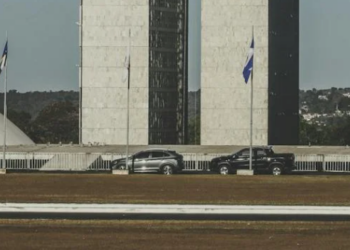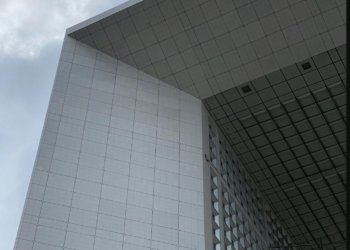by PublicABCP
Translated and reviewed by Matheus Lucas Hebling
In the study Corruption and Separation of Powers: Where do Prosecutors Fit?, published in the Hague Journal on the Rule of Law, authors Mariana Mota Prado (University of Toronto), Marjorie Corrêa Marona (Federal University of Minas Gerais), and Fabio Kerche (Federal University of the State of Rio de Janeiro) examine how different levels of prosecutorial autonomy can shape governance and anti-corruption efforts.
Drawing on the institutional impact of Brazil’s Public Prosecutor’s Office (Ministério Público) during the Lava Jato Operation, the study highlights the challenges and consequences of balancing independence with accountability in democratic legal systems.
The authors classify prosecutorial systems into three main models, based on their levels of independence and decision-making autonomy: bureaucratic, elected, and autonomous. In the bureaucratic model, prosecutors are subordinated to the executive branch, as in some European countries, which may limit their freedom of action. In the elected model, common in many U.S. states, prosecutors are chosen through popular vote, making them directly accountable to the electorate but also subject to political pressures.
Finally, the autonomous model, such as Brazil’s, is characterized by a high degree of independence from the other branches of government. While this grants prosecutors wide discretion, it also carries the risk of weaker accountability mechanisms.
The Lava Jato Operation, launched in Brazil in 2014, illustrates both the potential and pitfalls of the autonomous model. With broad freedom of action, Brazilian prosecutors spearheaded investigations that uncovered one of the largest corruption scandals ever recorded, involving state-owned companies, political parties, and major business conglomerates.
However, the study notes that the combination of high independence and far-reaching discretion also produced unintended consequences, such as political polarization, institutional instability, and significant economic repercussions.
Lava Jato further exposed the risks of practices later deemed abusive or arbitrary. Several convictions, including that of former president Luiz Inácio Lula da Silva, were annulled by the Supreme Federal Court due to lack of judicial impartiality and procedural irregularities. Moreover, the extensive use of plea-bargain agreements revealed vulnerabilities: in some cases, they were applied selectively or for political purposes, leading to convictions without robust supporting evidence.
These episodes underscore the dangers of weak oversight over prosecutorial action, ultimately undermining institutional credibility.
Based on this case study, the authors argue that prosecutorial autonomy is essential for fighting corruption, but it must be balanced with accountability mechanisms. A system granting prosecutors unchecked power risks producing decisions that disregard broader social, political, and economic consequences. Conversely, excessive subordination to other branches can compromise impartiality and investigative effectiveness.
The study suggests that the central challenge lies in designing institutional arrangements that secure sufficient independence to safeguard the rule of law, while preventing abuses that could harm democratic governance.
Its conclusions carry important implications for public policy and democratic resilience. By mapping the consequences of different prosecutorial models, the authors provide guidance for countries in transition or with young democracies to carefully weigh how best to combine independence with accountability.
The analysis of Lava Jato also points to the need for vigilance regarding the side effects of institutional reforms and for building structures that preserve the balance between autonomy and control—fundamental conditions for the sustainable functioning of the rule of law.
Author Profiles
Mariana Mota Prado is Professor of Law and William C. Graham Chair in Law and International Development at the University of Toronto (Canada). She holds a Law degree from the University of São Paulo, as well as an LL.M. and J.S.D. from Yale Law School (USA).
Marjorie Corrêa Marona is Professor of Political Science at the Federal University of Minas Gerais (UFMG), PhD in Political Science, Coordinator of the Observatory of Justice in Brazil and Latin America (OJb-AL), and researcher at the Institute for Democracy and Democratization of Communication (INCT/IDDC).
Fábio Kerche earned his BA in Social Sciences and his MA and PhD in Political Science from the University of São Paulo (USP), with a research stay at New York University (NYU). He is Professor at the Federal University of the State of Rio de Janeiro (UNIRIO), a former senior researcher at the Casa de Rui Barbosa Foundation, and a research fellow at the Center for Latin American and Latino Studies (CLALS), American University, Washington, DC.
Publication Information
Title: Corruption and Separation of Powers: Where do Prosecutors Fit?
Authors: Mariana Mota Prado, Marjorie Corrêa Marona, and Fabio Kerche
Publication year: 2024
Available at: Springer Nature Link








